The Lee Family

By: Fajr and Razan
The Korean entrepreneur "Lee Byung-chul," the youngest son of a wealthy family, was born in Gyeongsangnam-do on February 12, 1910. He studied economics at Waseda University in Tokyo but decided to leave in 1931.
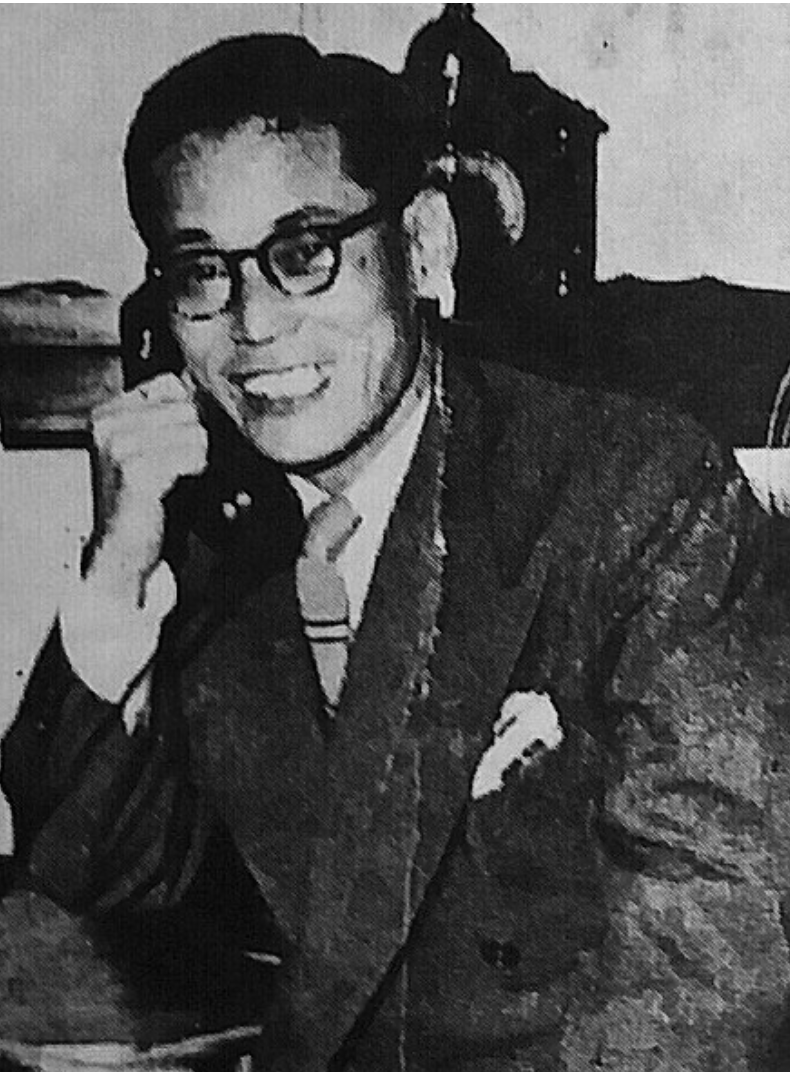
Lee Byung-chul did not rely on his family's wealth; instead, he sought to achieve his own identity with a unique vision. He founded "Samsung" in 1938, which started as a small trading company exporting goods to China. After the Korean War, he expanded into various fields such as finance and insurance.
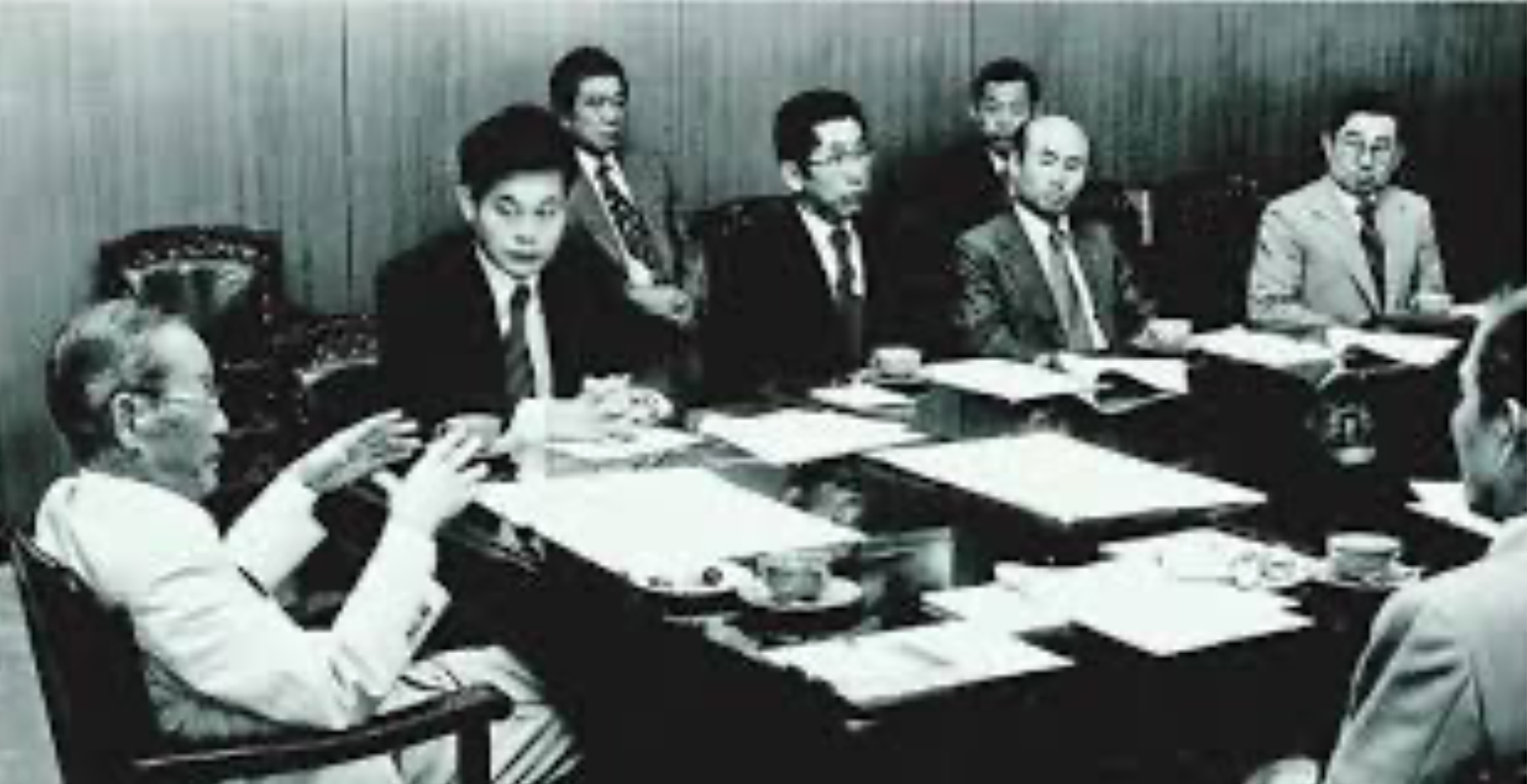
In the 1960s, he began to focus on the electronics industry, where Samsung released its first black-and-white television. Later, he expanded into semiconductors and telecommunications, and he established a cultural foundation to promote cultural life in Korea.
Lee Byung-chul passed away in 1987, and his son, Lee Kun-hee, took over the leadership of Samsung. The conglomerate was divided into five companies, with the electronics division remaining under Lee Kun-hee's management, while the other four companies were led by the sons and daughters of Lee Byung-chul.
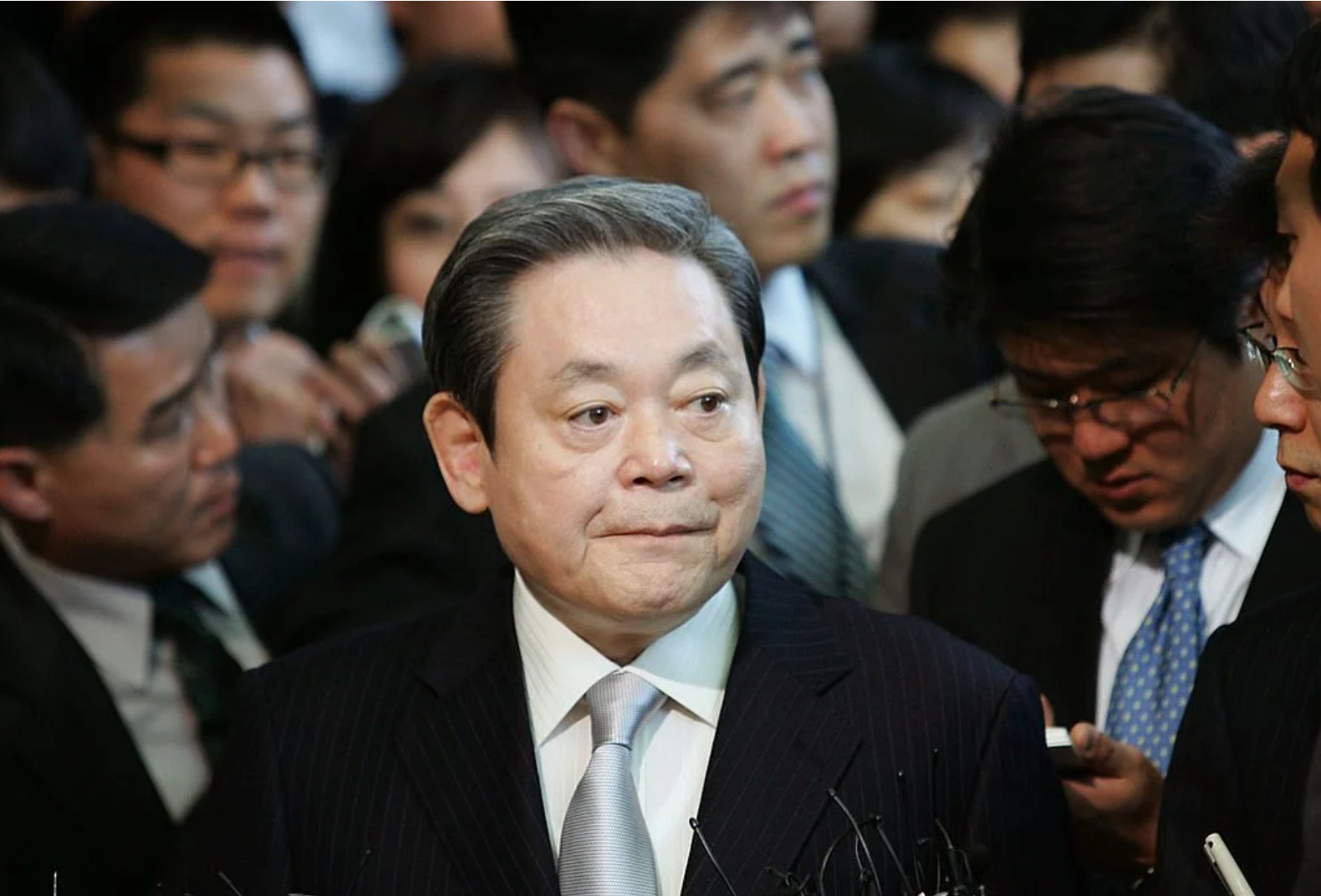
Lee Kun-hee believed that Samsung had become complacent due to its dominance in the South Korean economy and was unprepared for global challenges. He famously told company executives, "Change everything except your wives and children."
Under what he called "new management," Samsung encouraged subordinates to correct their superiors' mistakes and focused on improving product quality rather than increasing quantity. The company also supported the promotion of women to senior leadership positions and sought to reduce bureaucracy in its operations.
In the 1990s, Lee Kun-hee expanded Samsung globally despite scandals involving patent issues and bribery. He was convicted of bribery in 1996 and received a presidential pardon in 1997. In 2008, he resigned after being convicted of tax evasion, but he was pardoned again in 2009 to lead South Korea's bid to host the 2018 Olympics.
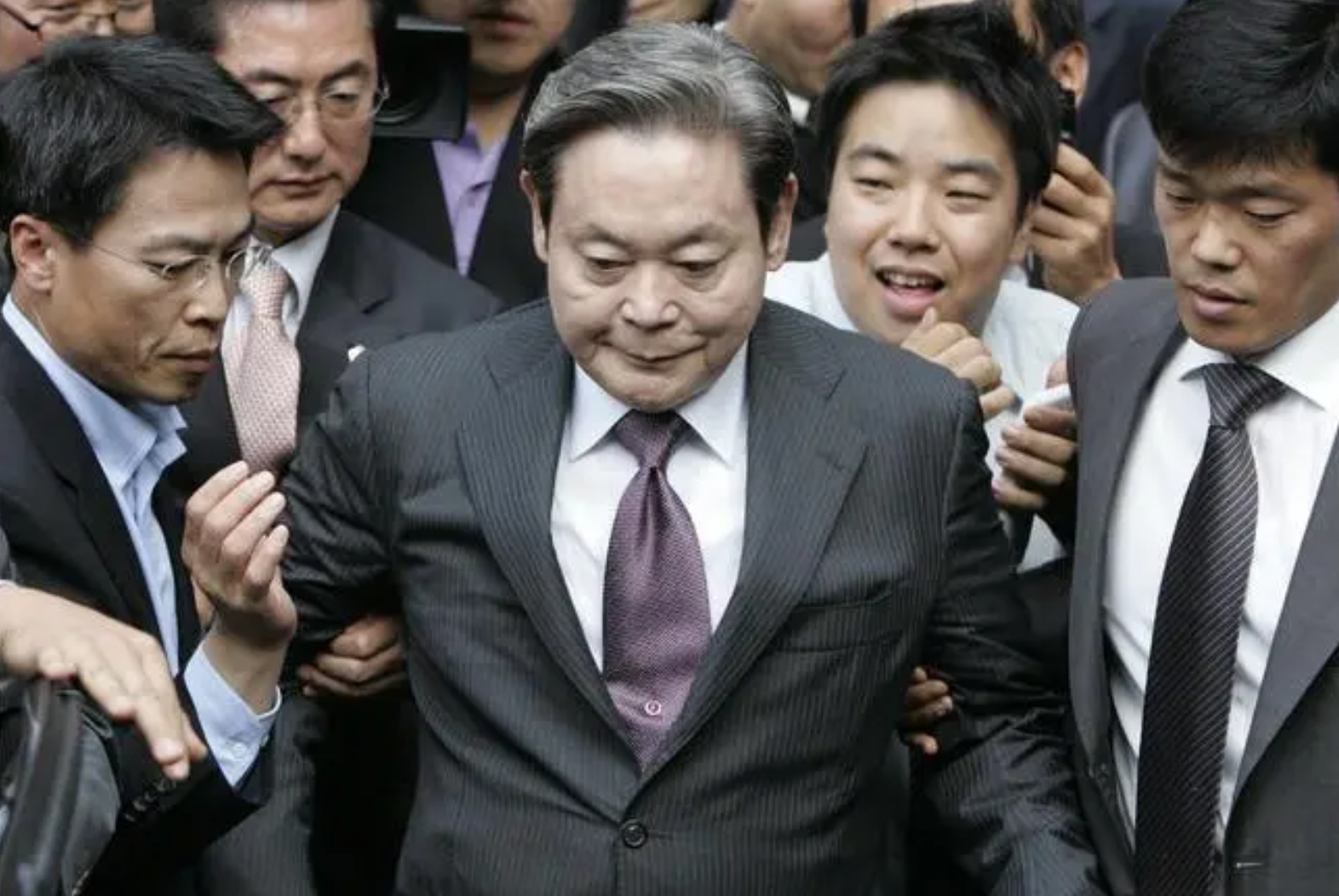
Lee Kun-hee returned to the presidency of Samsung in 2010, but he suffered a heart attack in 2014, which made his son, Lee Jae-yong, the de facto leader of the company until his death in 2020.
Lee Jae-yong, also known as one of the most influential businessmen in South Korea, became the CEO and Chairman of Samsung as of October 2020. Before taking on this role, he served as Vice Chairman of the Board since 2012.
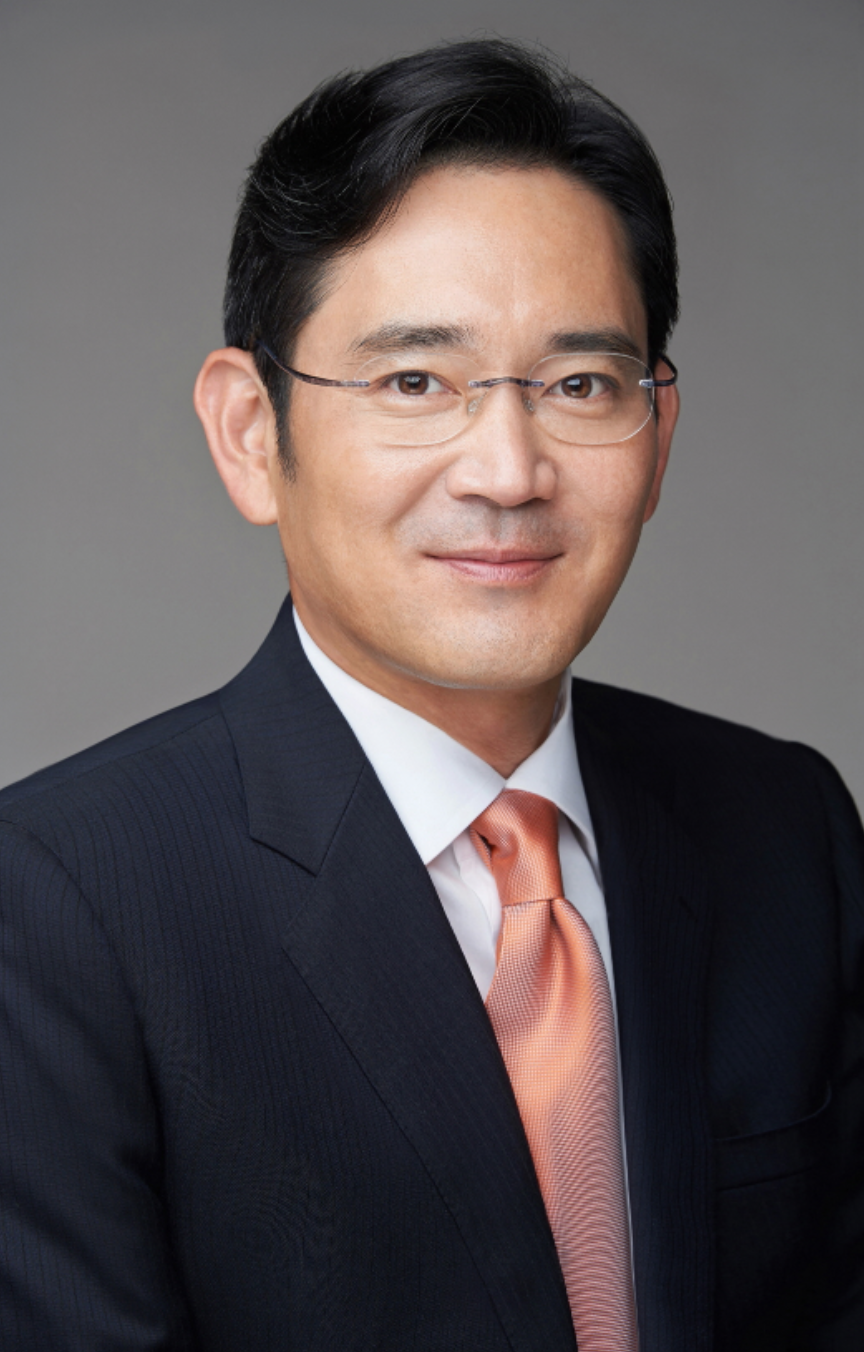
Despite facing legal challenges in recent years, including corruption charges and a brief imprisonment, Lee Jae-yong continued to lead the company and drive innovation in areas such as artificial intelligence, 5G networks, and semiconductors.

Under his leadership, Samsung aims to maintain its position as a global technology leader and achieve further growth in future industries. In 2024, "Cheil Worldwide," a subsidiary of Samsung, achieved significant milestones, winning five awards, including a gold award.
.One of the standout achievements was the "Samsung Impulse" project, an AI-based application designed for Samsung smartwatches that aims to assist individuals with speech disorders.
The app analyzes words using natural language processing (NLP) algorithms and converts them into rhythmic vibrations to help users pronounce words smoothly. This project won a gold award in the design category, along with a silver award in the health and wellness category.

References:
- https://www.forbesmiddleeast.com/ar/billionaires/world-billionaires/lee-kun-hee legendary-head-of-samsung-and-koreas-richest-man-dies-at-78-1
- https://www.nytimes.com/2020/10/24/obituaries/lee-kun-hee-dies-samsung.html https://www.britannica.com/money/Samsung-Electronics